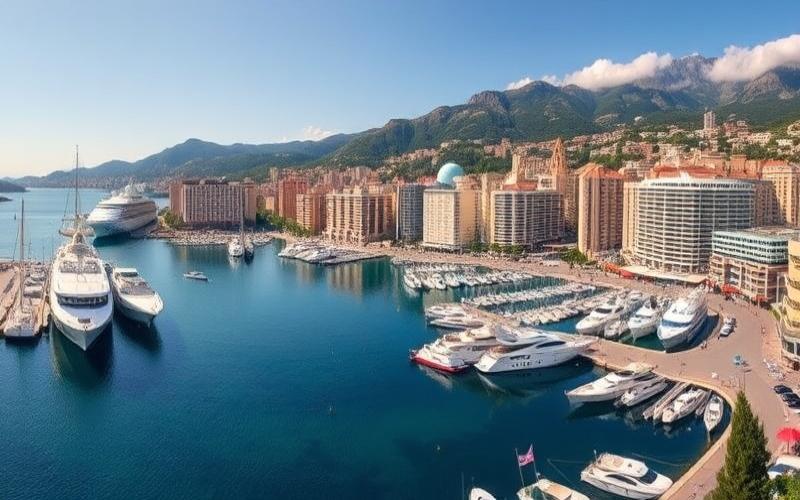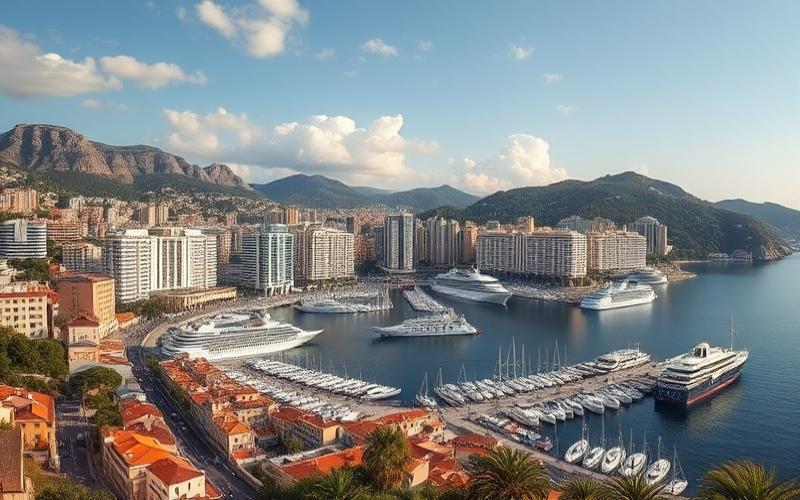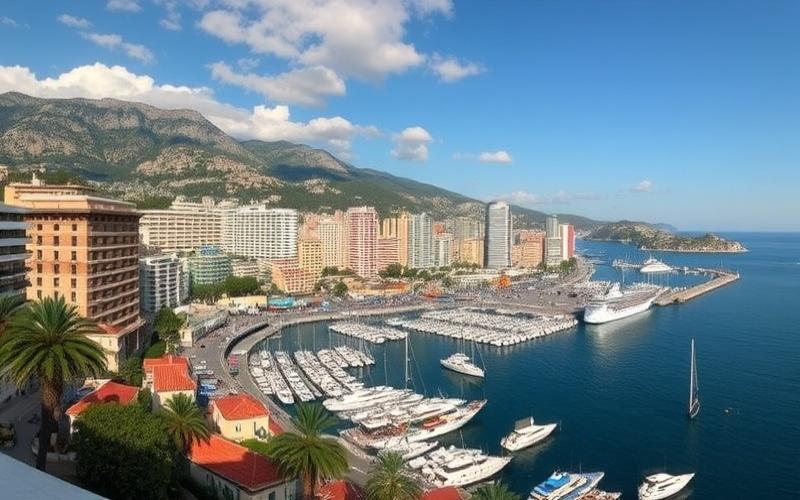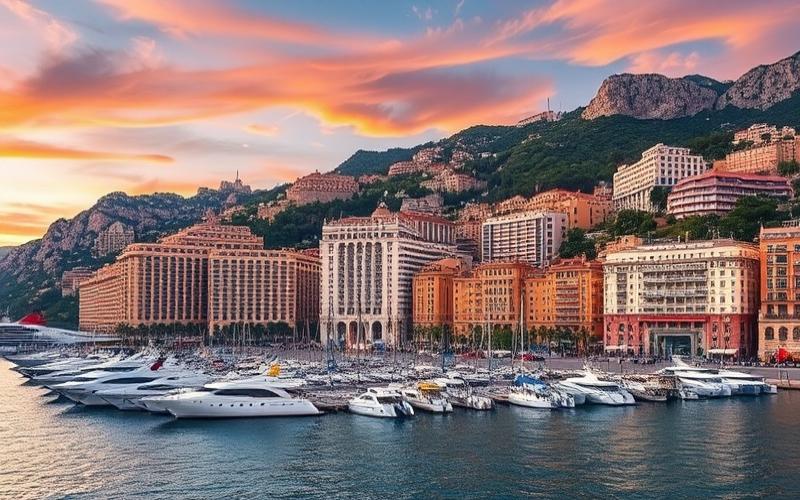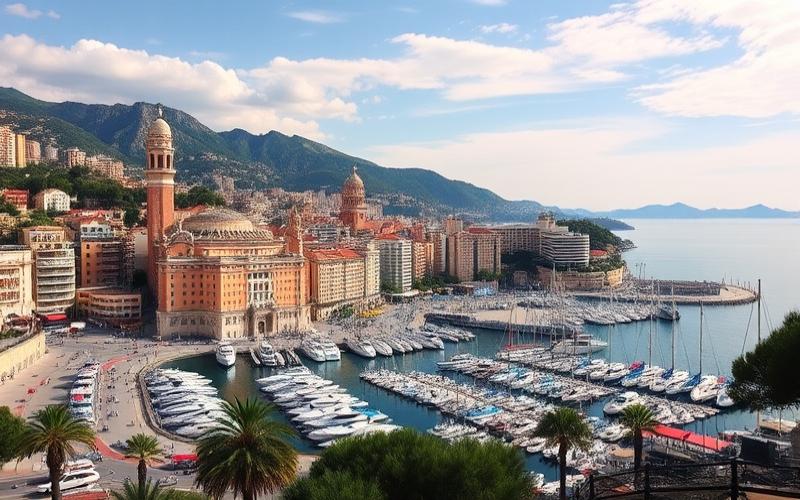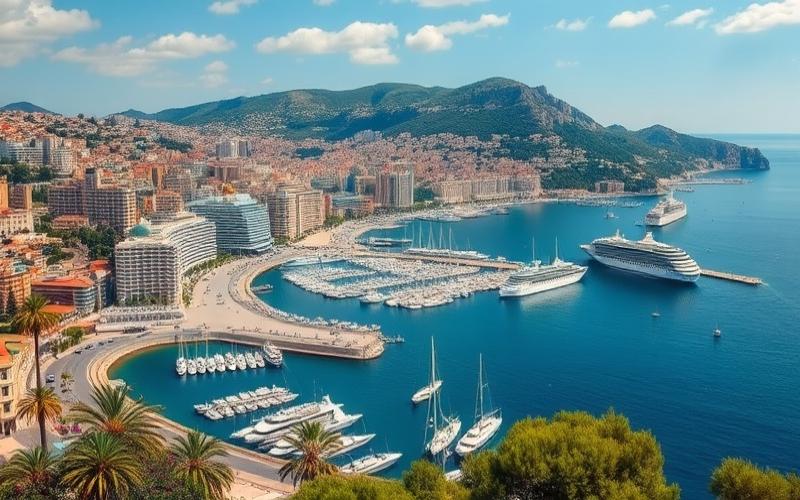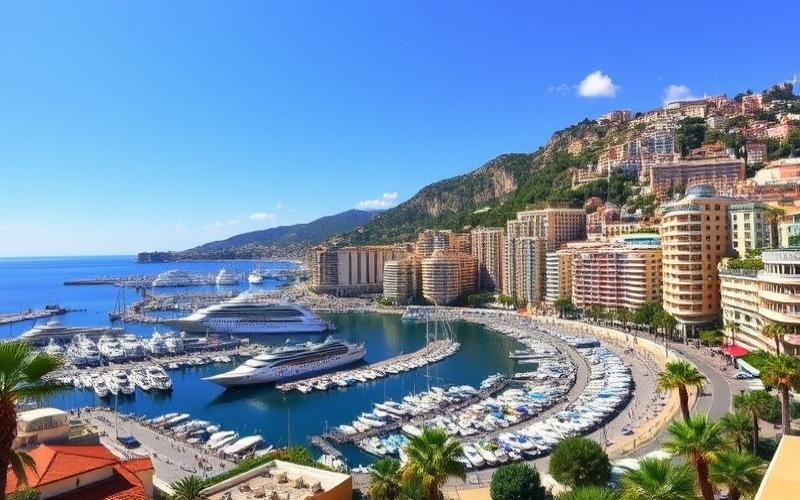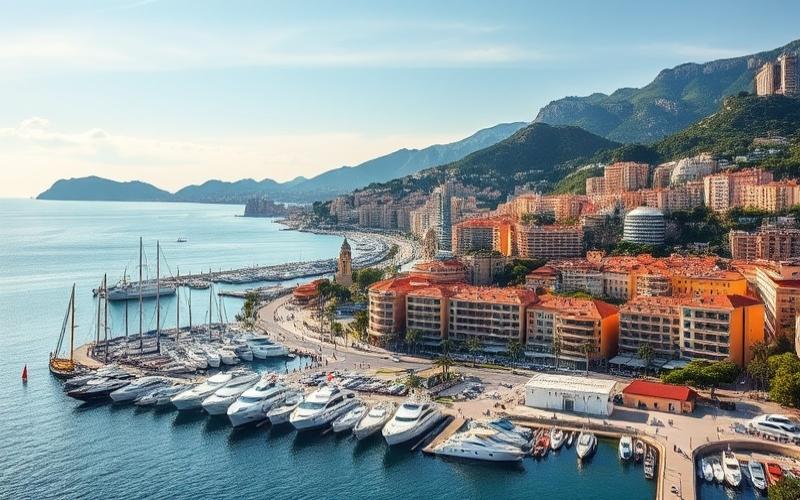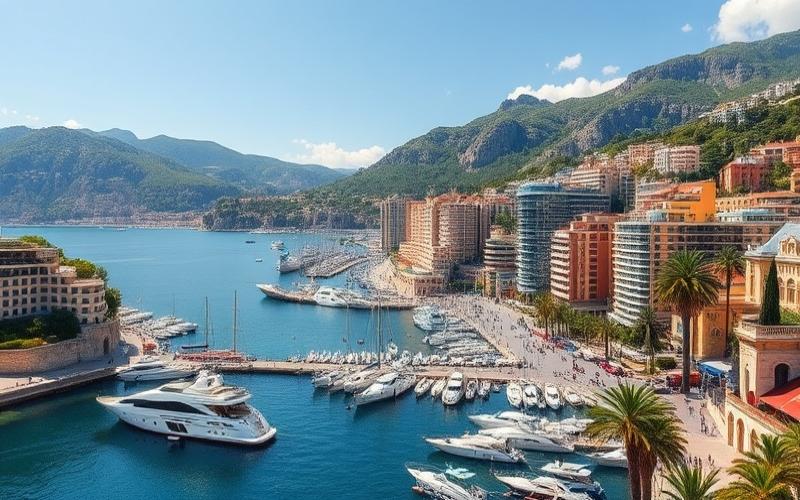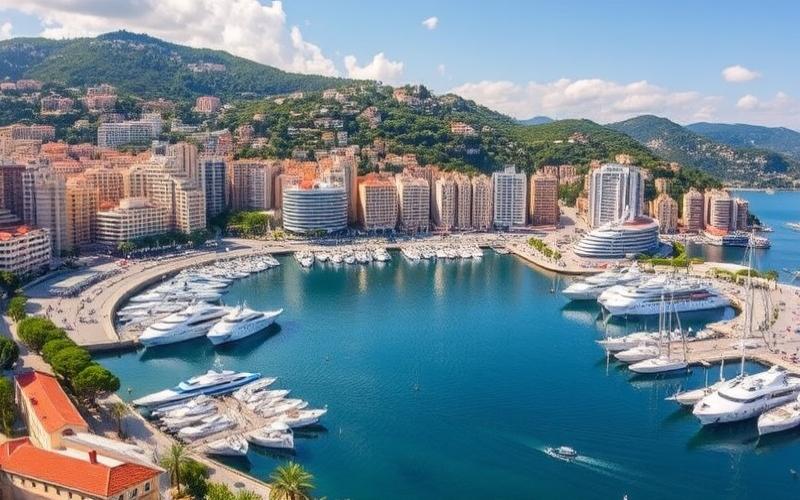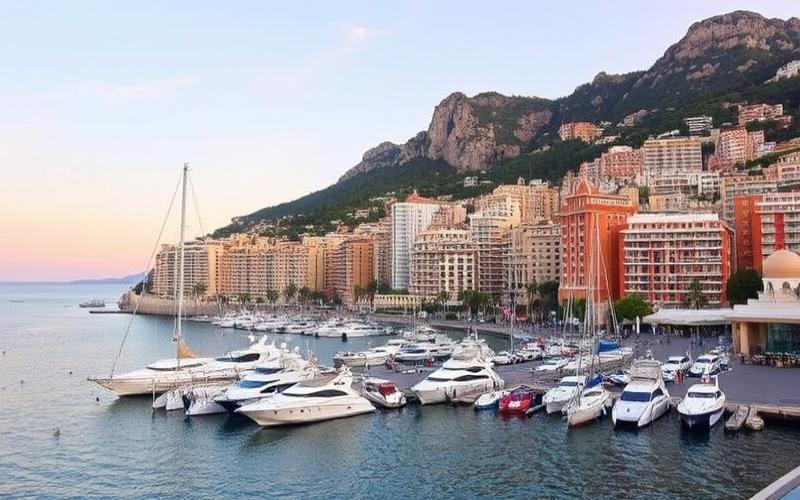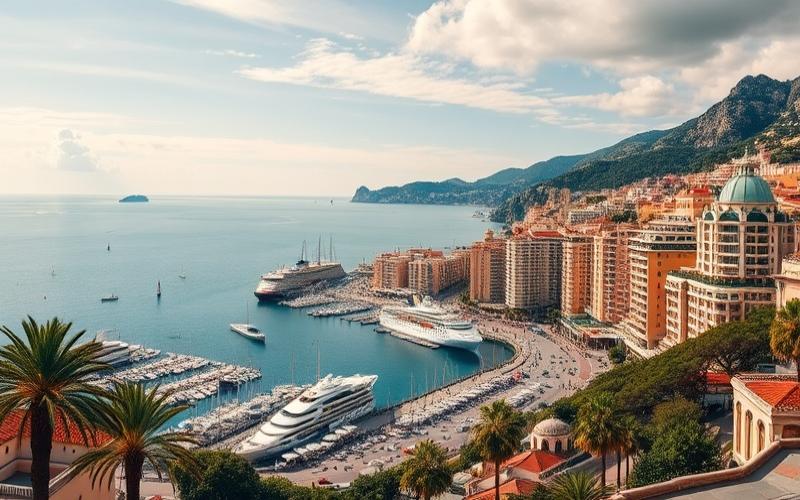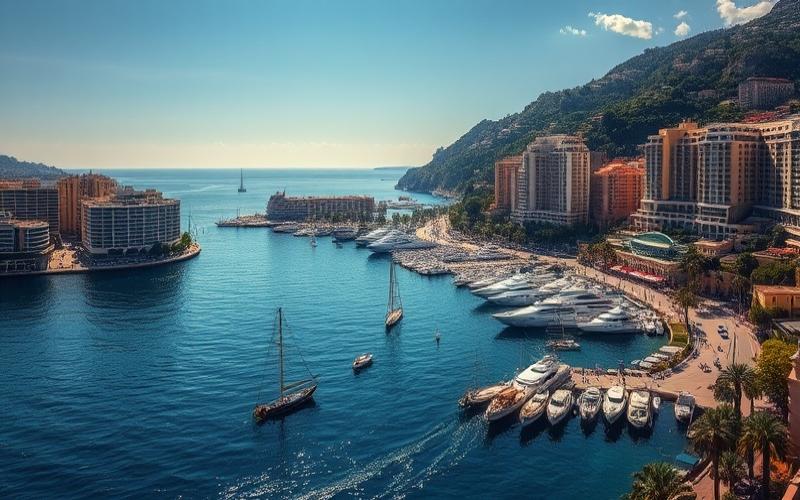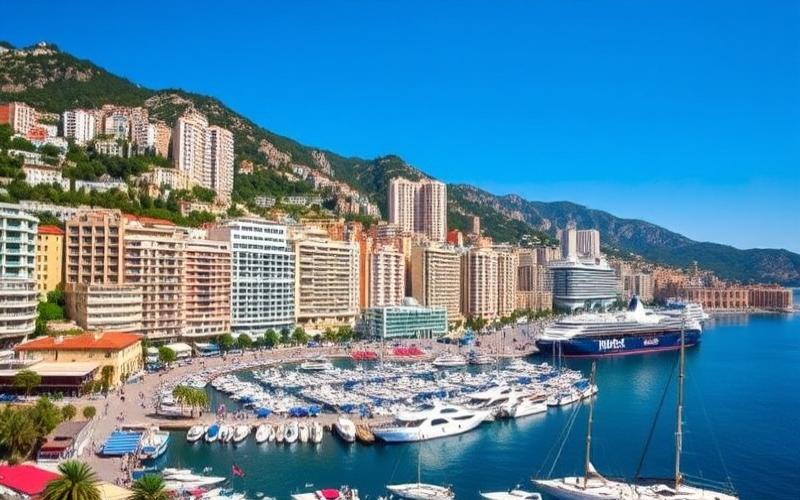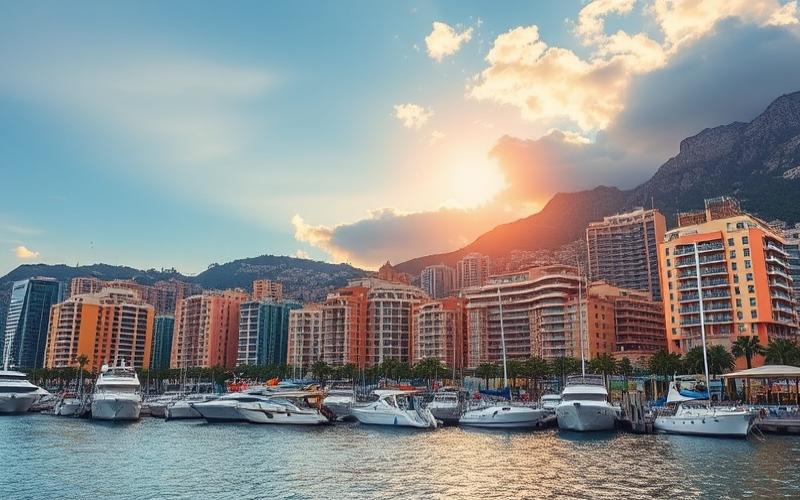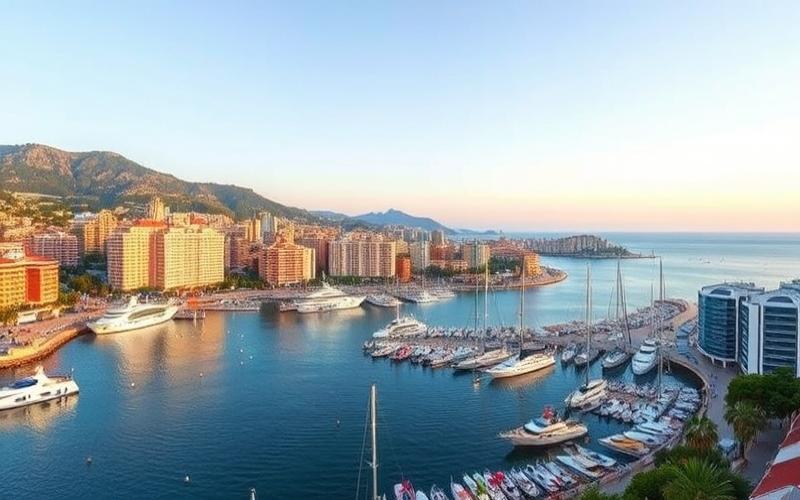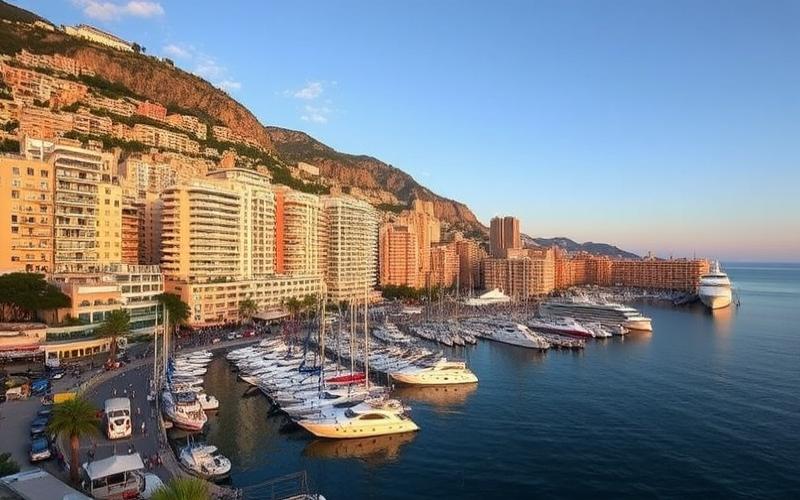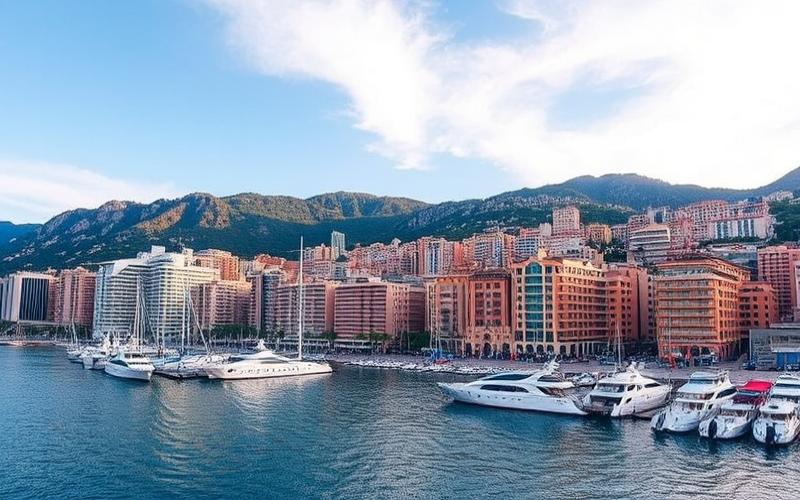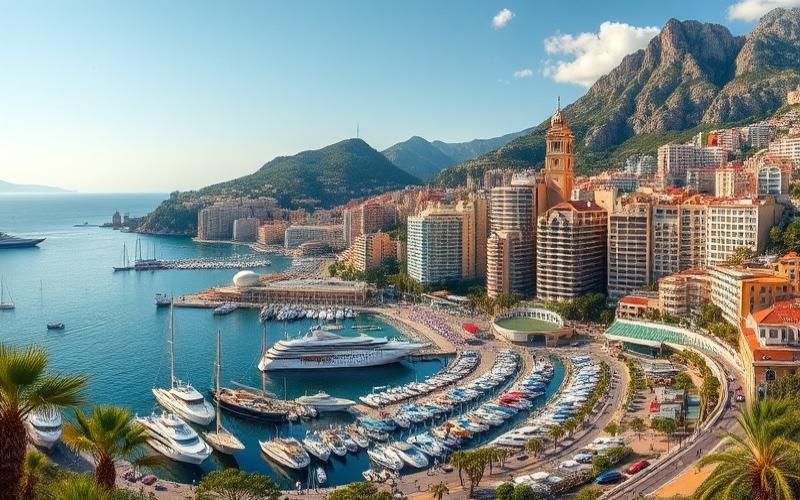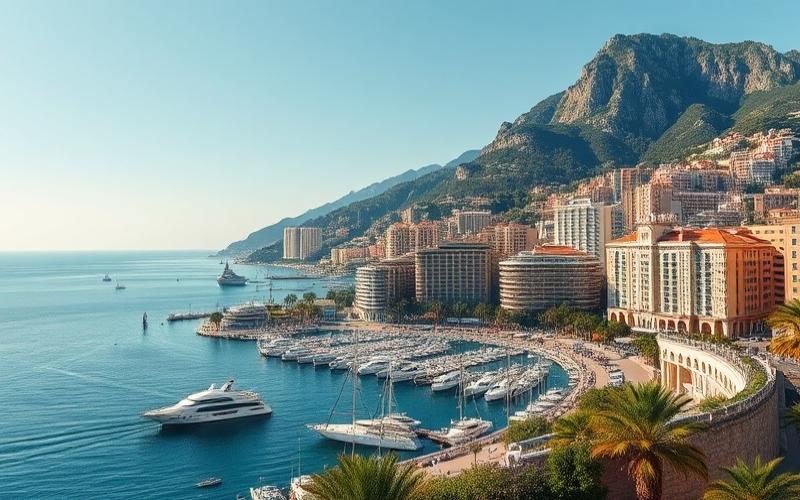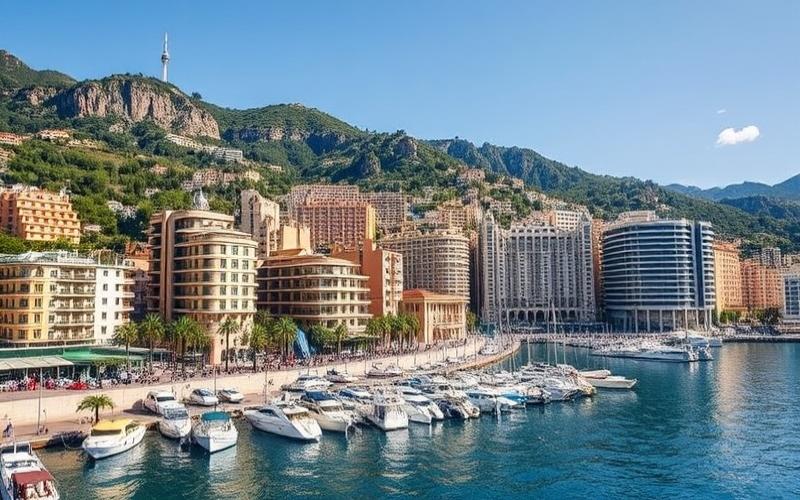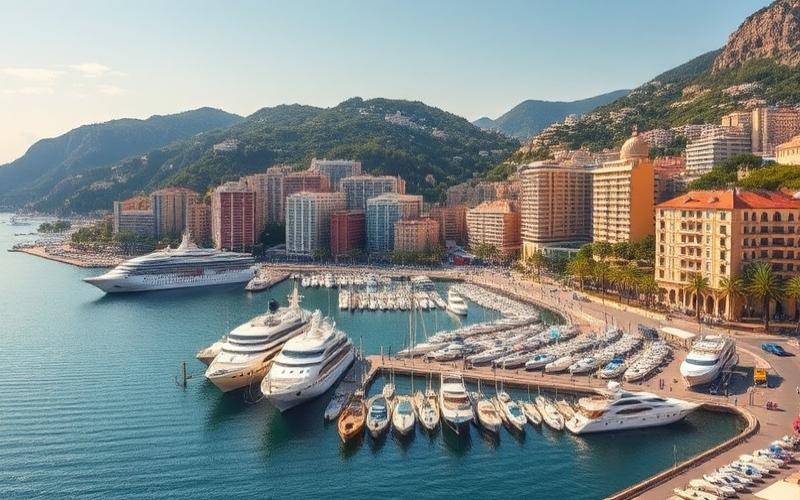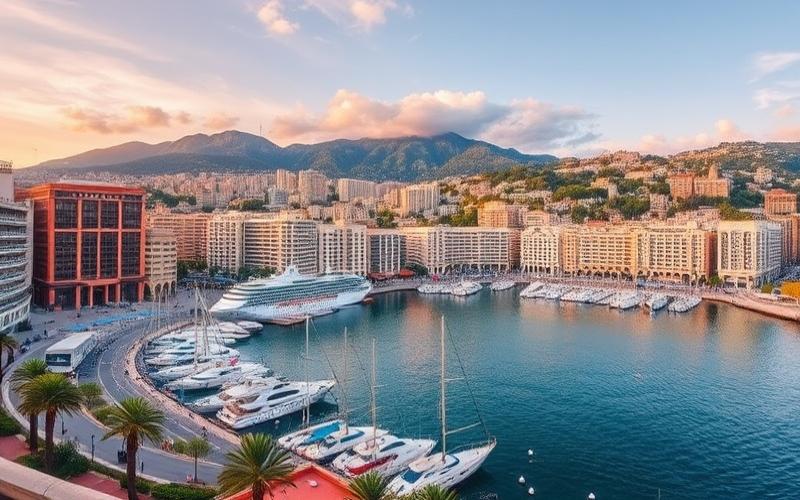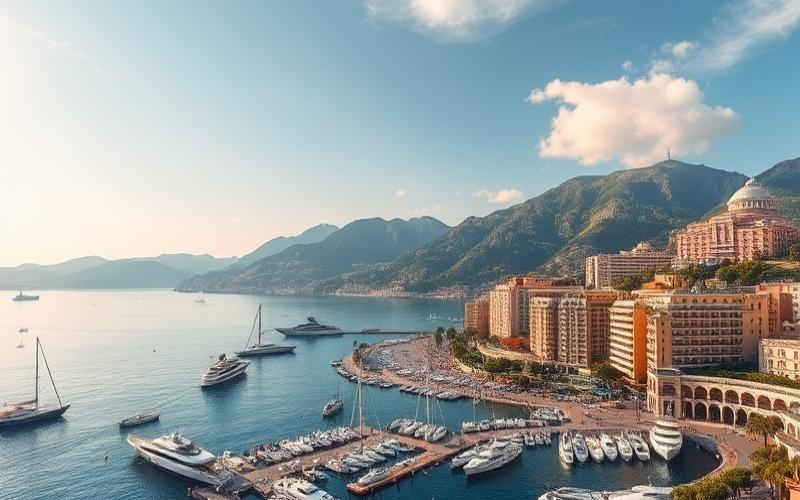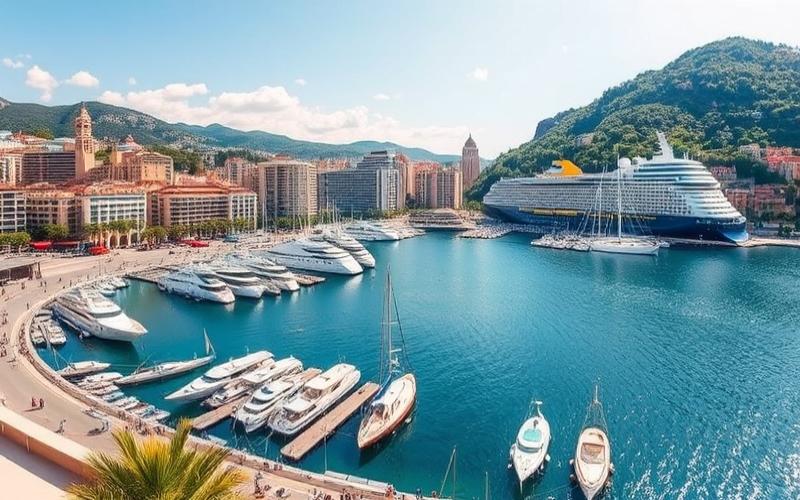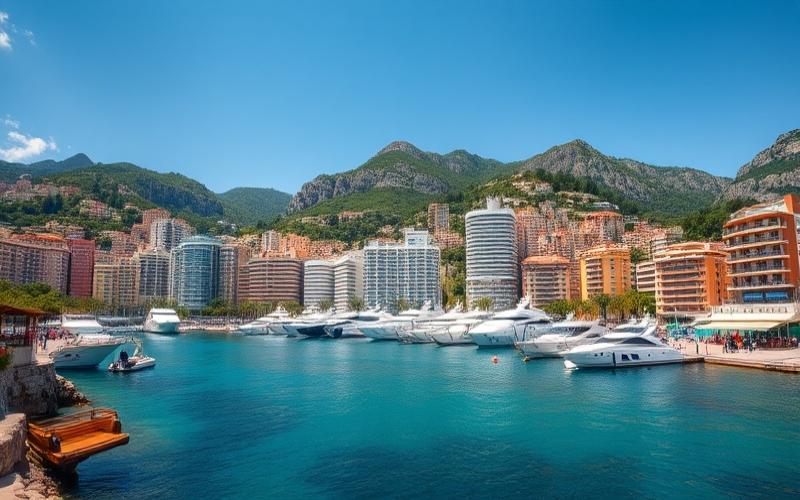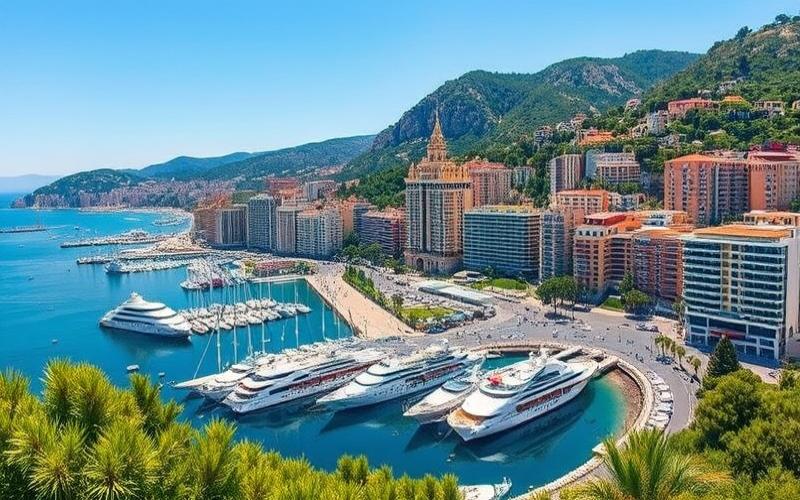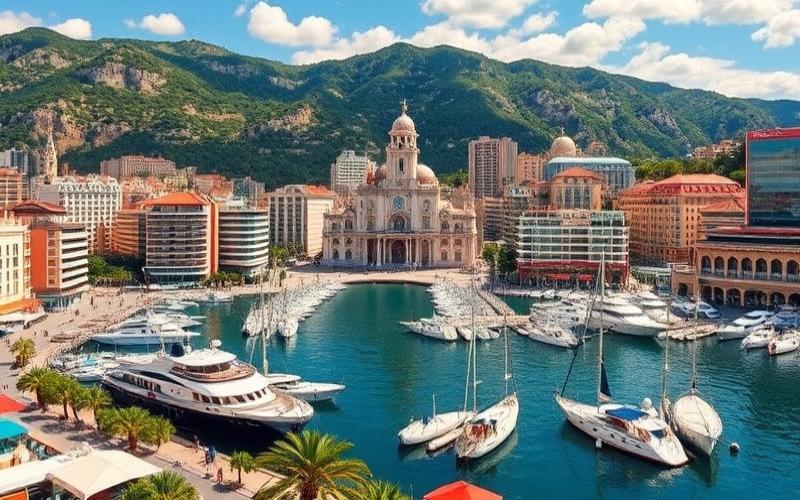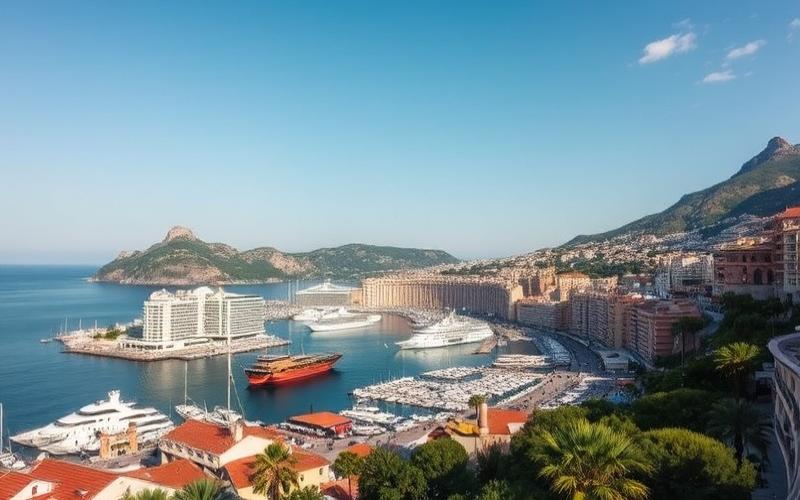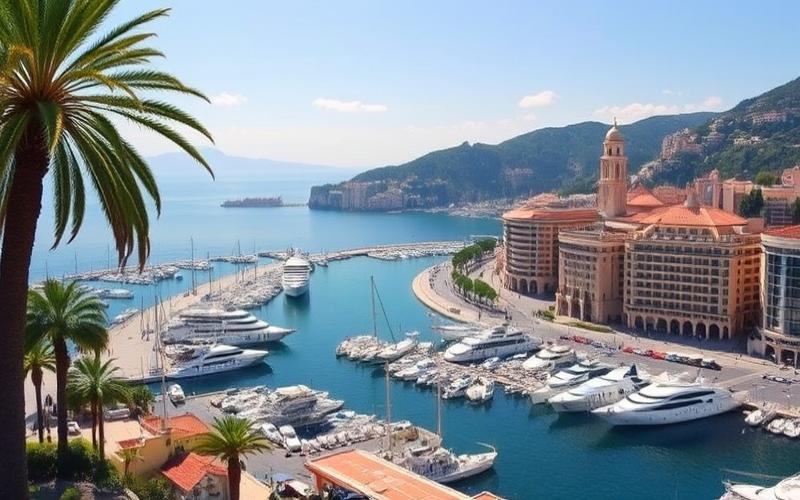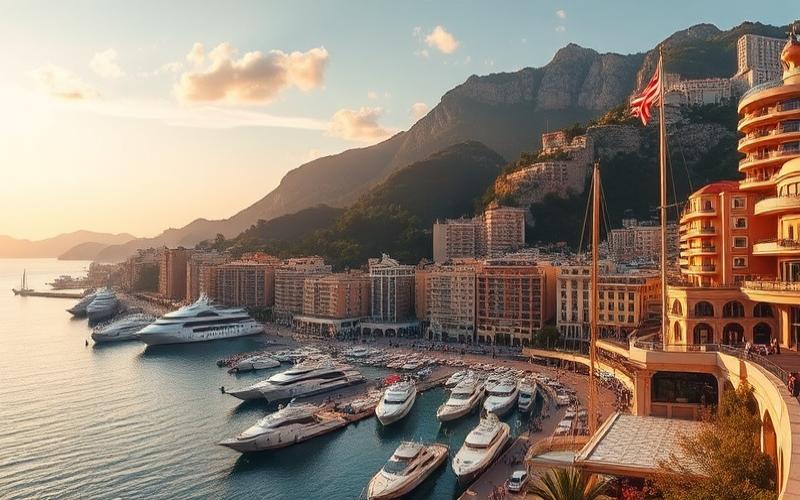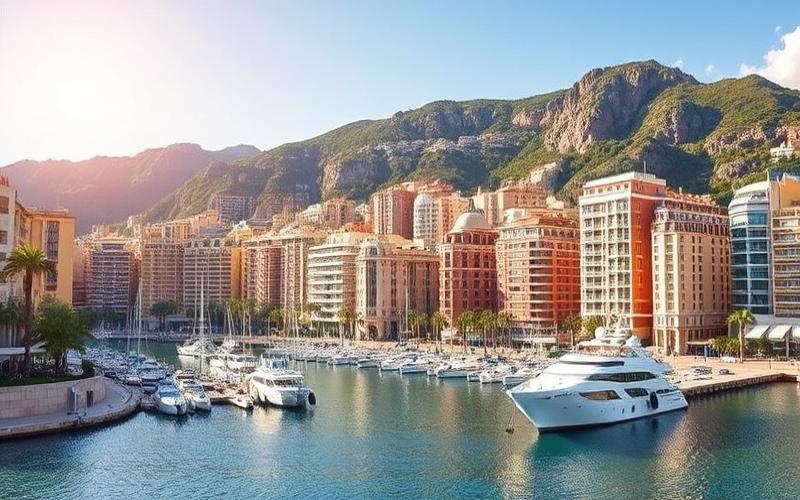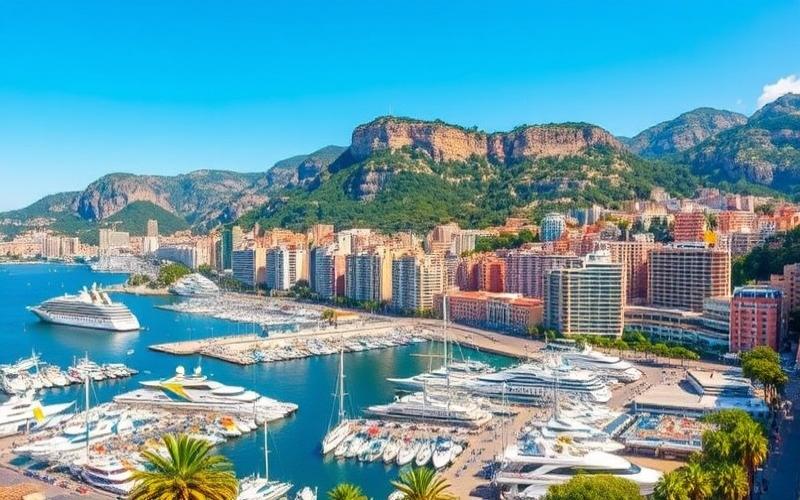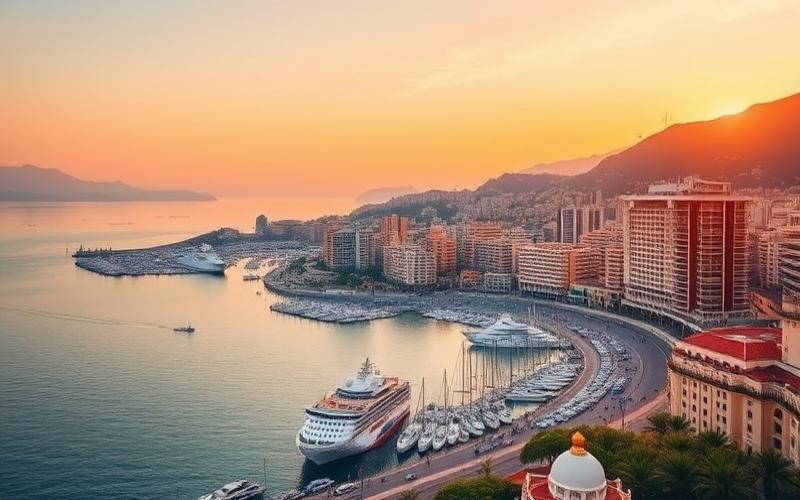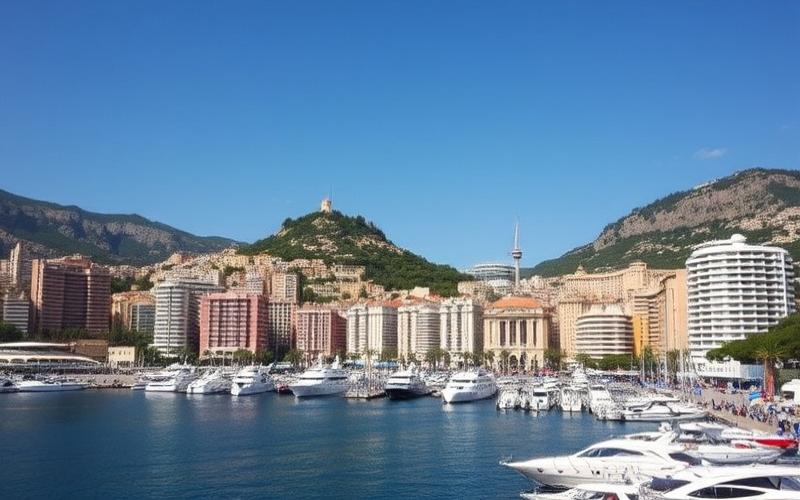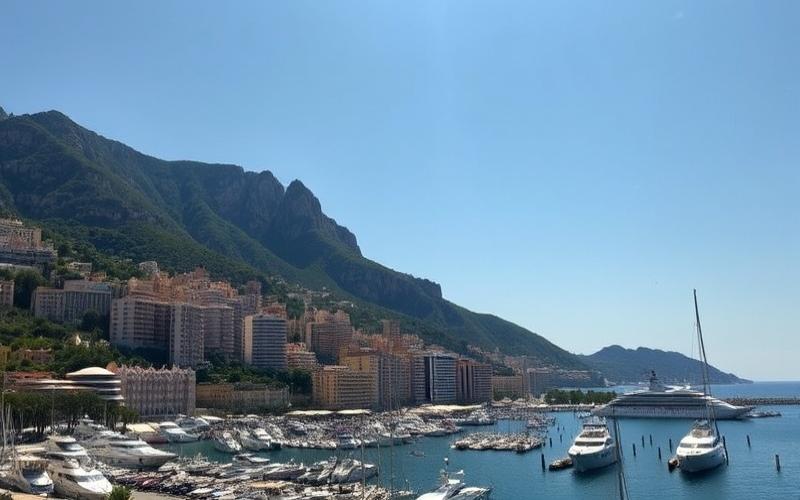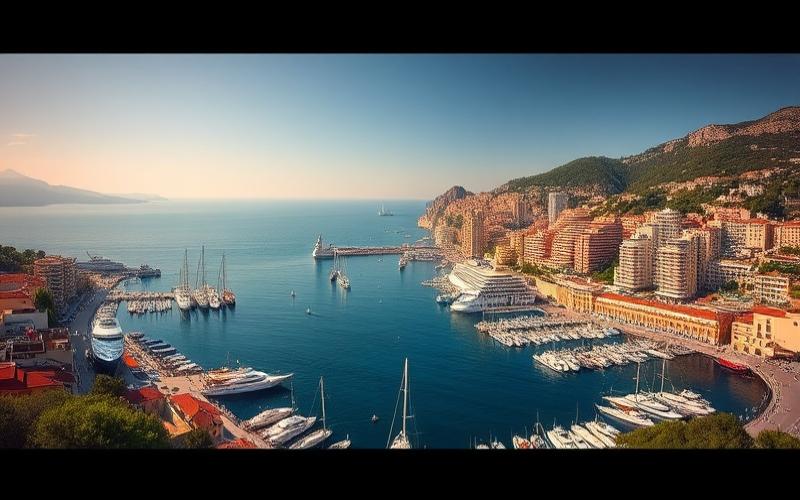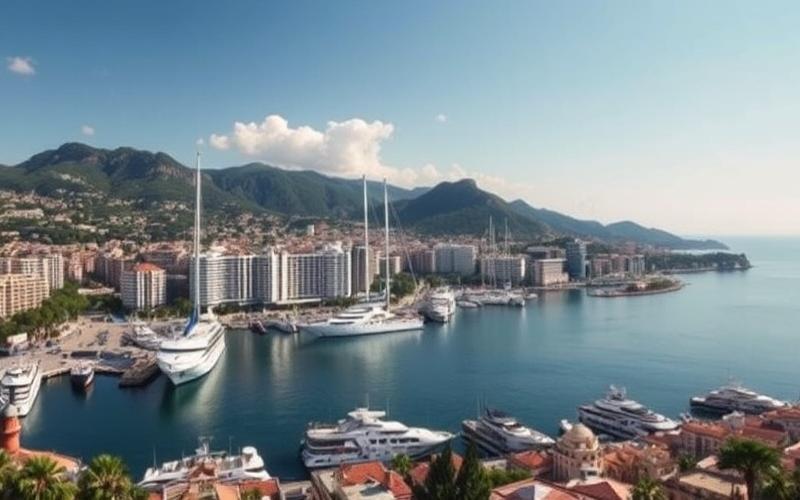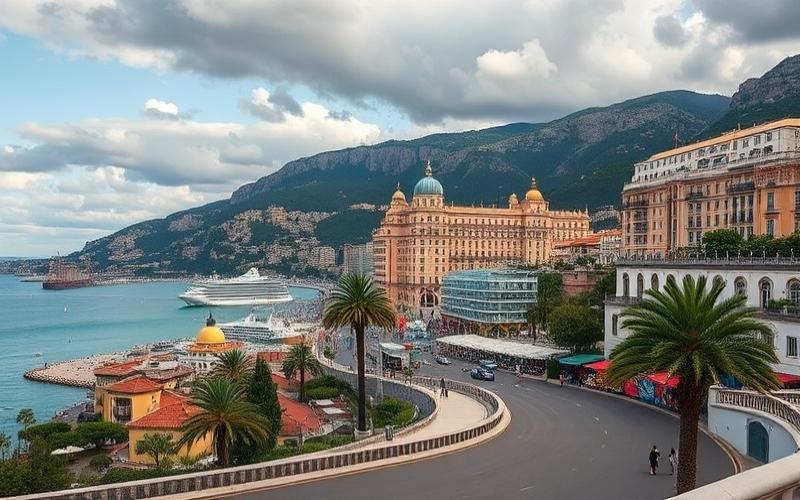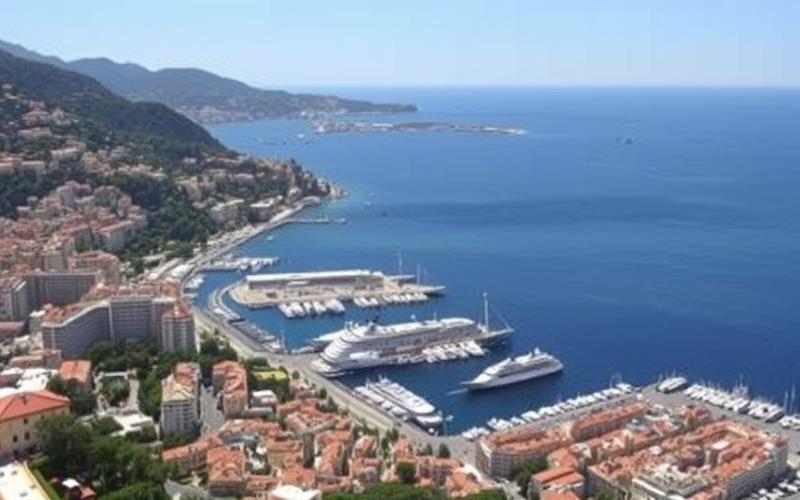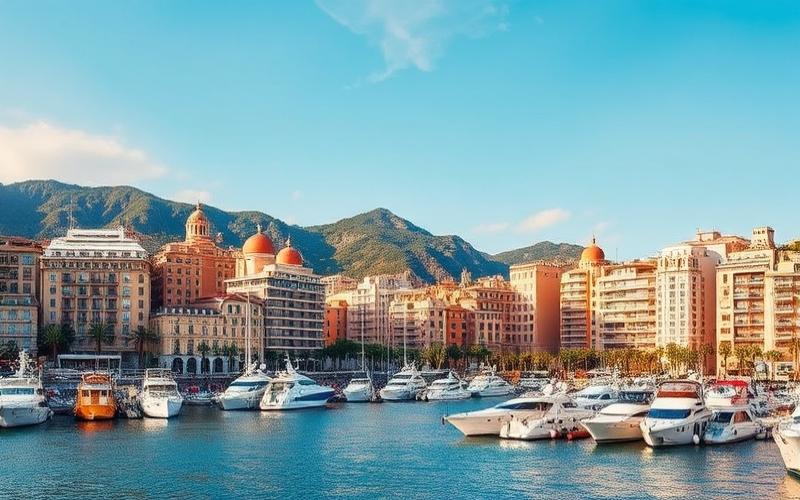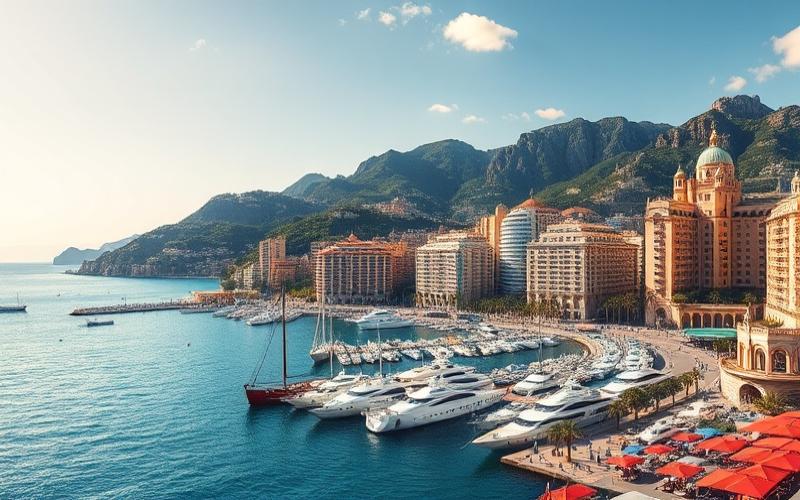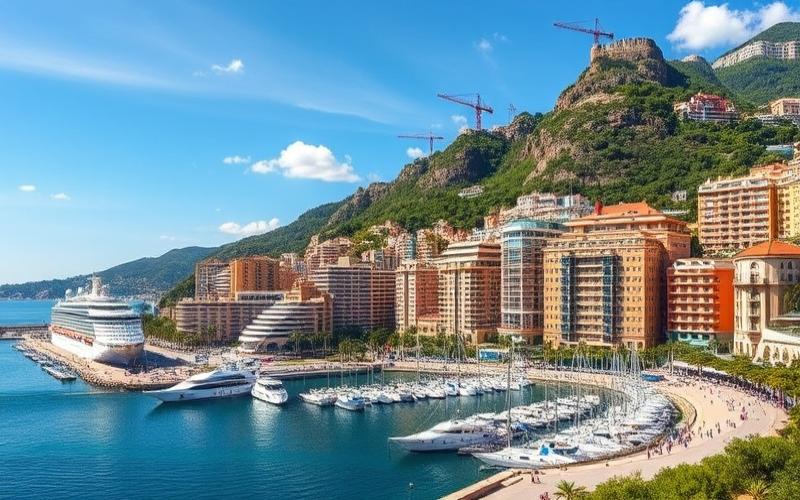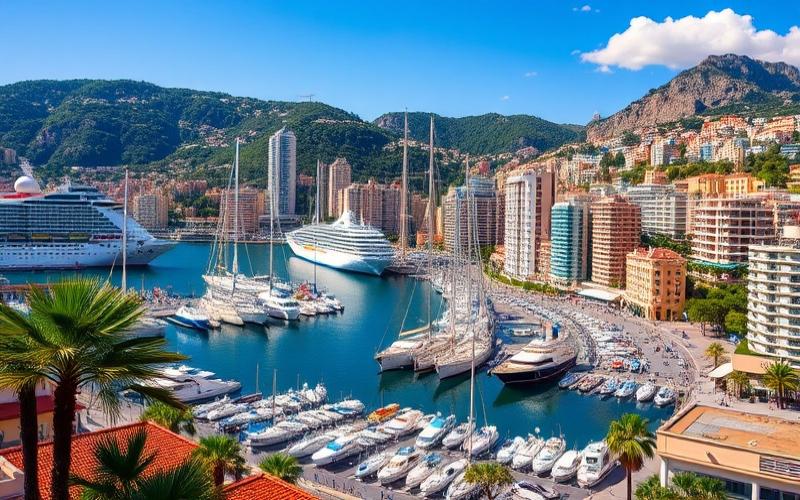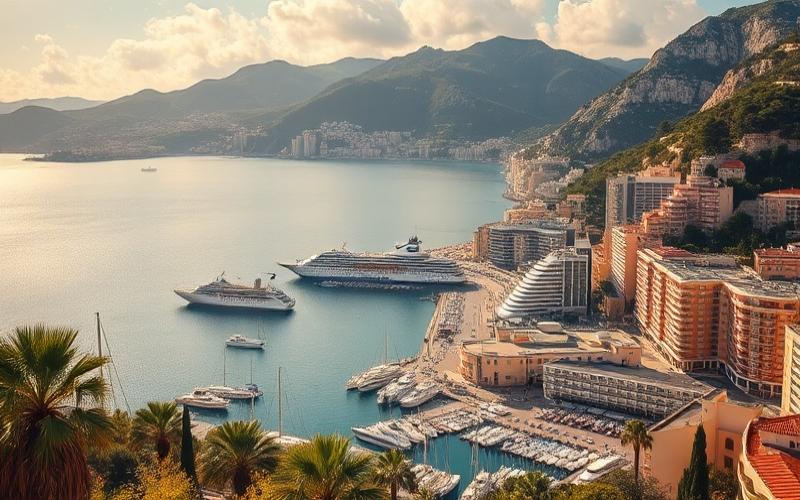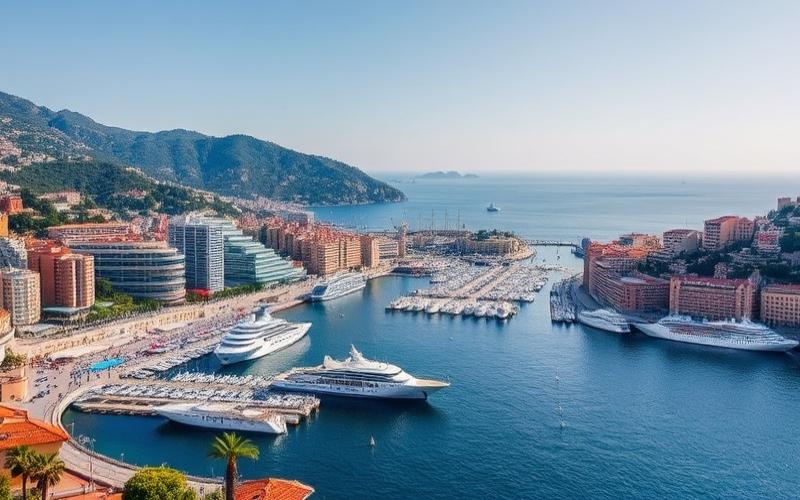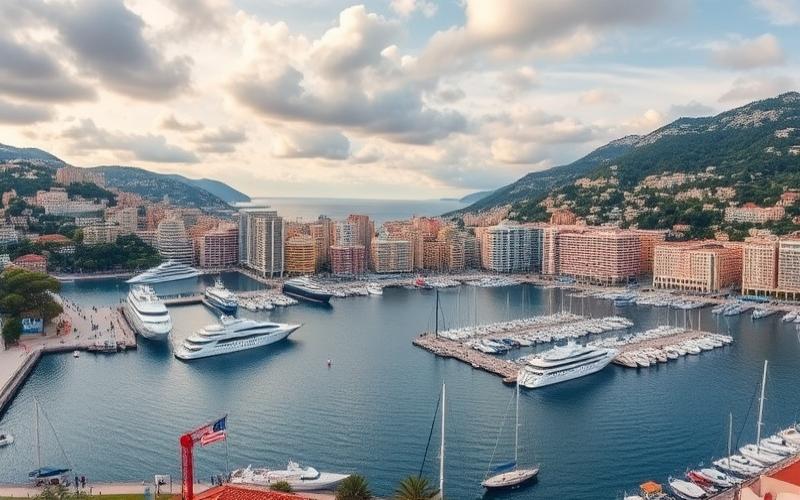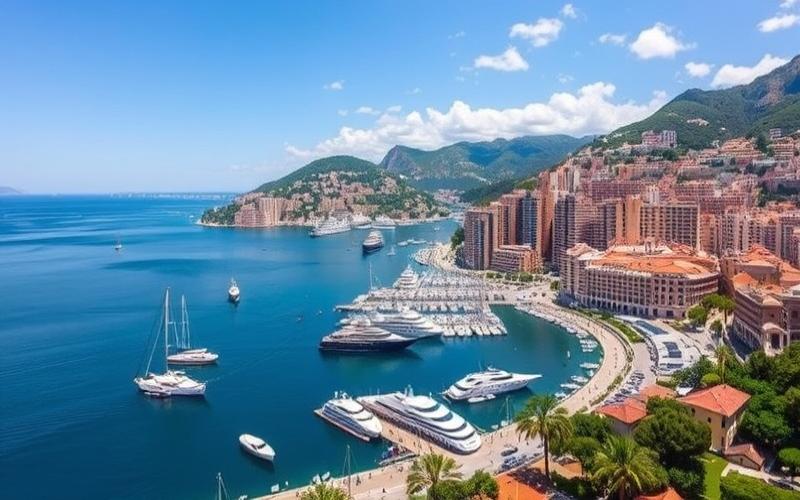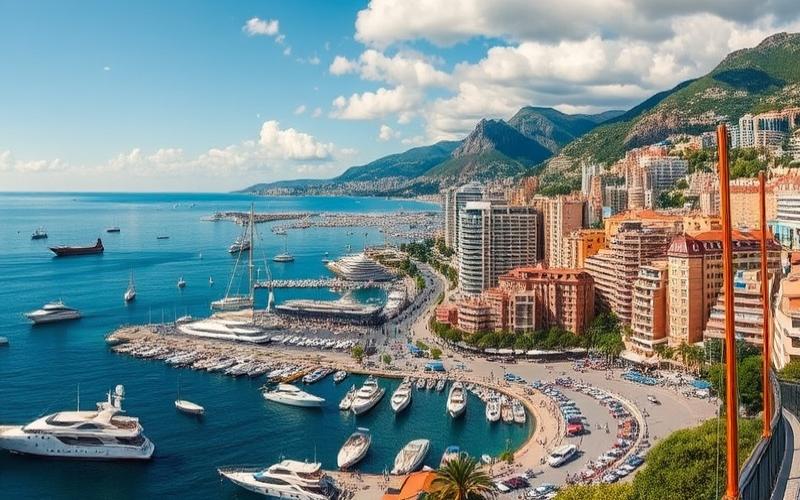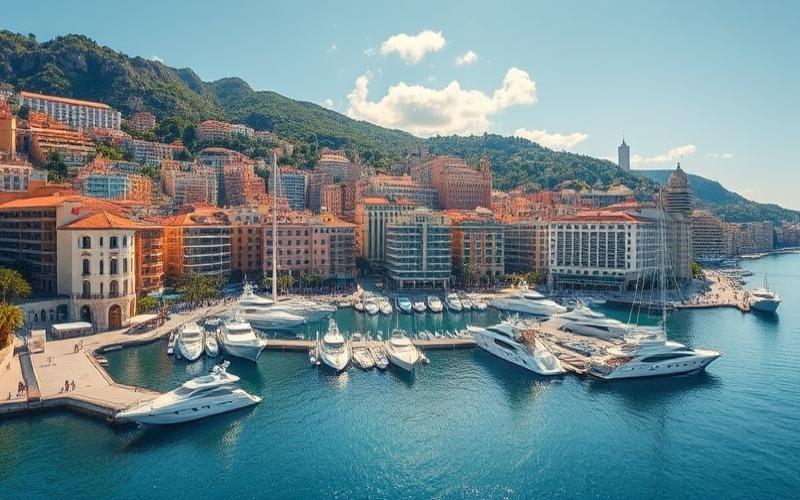
 Published on and written by Cyril Jarnias
Published on and written by Cyril Jarnias
Monaco: A Unique and Regulated Real Estate Market
Monaco, this gem of the French Riviera, is renowned for its luxury and exclusivity, but behind its glamorous facades lies a complex set of real estate laws and regulations that are crucial to master for anyone looking to invest there.
With one of the most competitive real estate markets in the world, understanding the legal specifics of the Monegasque territory becomes not only a necessity but also an essential advantage.
This article will guide you through the nuances of the legal procedures, ownership conditions, and tax requirements that shape this unique sector, allowing you to navigate this singular regulatory environment with confidence.
Good to Know:
The Monegasque real estate market is one of the most expensive and regulated in the world, with specific rules for residents and non-residents.
Foreigners’ Rights Regarding Real Estate Acquisition in Monaco
Foreigners are allowed to acquire real estate in Monaco, regardless of nationality, including non-European nationals. However, certain specific conditions and administrative procedures must be followed.
Applicable Conditions and Restrictions:
- Non-residents must obtain a residence certificate issued by the Monegasque government before acquiring real estate.
- Foreigners undergo thorough checks regarding their background and financial credibility.
- Acquisition taxes are generally higher for non-residents than for residents.
- There is no strict ban targeting specific countries; no mention indicates preferential conditions based on nationality.
Required Administrative Procedures:
- Submission of a file including:
- Valid passport or ID
- Proof of sufficient funds or bank statements
- Monegasque residence certificate (for non-residents)
- Signing of the preliminary contract then final deed before a notary in Monaco
- Payment of registration fees or purchase tax
Comparative Table of Rights by Status:
| Status | Right to Purchase | Tax Rate | Rental Freedom | Legal Protection |
|---|---|---|---|---|
| Monegasque Resident | Yes | Standard | Full | Complete |
| Foreign Resident | Yes | Standard | Full | Complete |
| Foreign Non-Resident | Yes (with cert.) | Increased | Full (regulated) | Complete |
Differences with Monegasques:
The main inequality concerns taxation: non-residents pay a higher tax upon purchase, while legal protection in real estate matters remains the same regardless of the owner’s status.
No specific additional rights are granted to Monegasques apart from the advantageous tax regime reserved for residents.
List of Additional Obligations:
- Mandatory declaration of rental income generated in the principality, even though Monaco does not levy personal income tax.
- Strict compliance with the local legal framework regarding seasonal or long-term rentals.
The restrictive rules primarily aim to maintain rigorous control over the highly attractive and secure real estate market, while preserving its exclusivity.
The notable absence of discrimination between countries strengthens international appeal but also increases upward pressure on prices already among the highest in the world: this can structurally limit access to the local market for certain economic profiles while maintaining a wealthy and international clientele.
Good to Know:
Foreigners can acquire real estate in Monaco without specific restrictions, but the process may be smoother for those with resident status. No prior authorization is required, but documents such as a valid ID, proof of financial capacity, and possibly justification of fund origin are necessary. Buyers from an EEA member state or with a comparable tax regime may enjoy administrative facilitations. Monegasque residents have no particular restrictions and transactions can be faster for them. Nations with bilateral agreements with Monaco may benefit from preferential conditions, thus influencing real estate market dynamics as these facilitations can increase competitiveness between foreign and local buyers, impacting prices and property availability.
Real Estate Laws and Regulations: What You Need to Know
The real estate legal framework in Monaco is particularly structured and aims to preserve the market’s specificity while ensuring the protection of various stakeholders. The main laws governing the purchase, sale, and rental of real estate are rigorously enforced, with notable particularities concerning residential rentals.
| Type of Operation | Main Regulation | Specificities |
| Purchase/Sale | Monegasque Civil Code | Process secured by mandatory notarial deed. Absence of transfer duties for residents; for non-residents, specific conditions possible depending on tax status. |
| Residential Rental | Law No. 1235 and Law No. 887 | Strict regulation for certain older buildings (Law 1235): regulated rents, automatic lease renewal, minimum 6-year term. Law 887: free rents in recent or new properties, minimum 6-year term without automatic renewal. |
Rights and Obligations of Owners
- Comply with the legal framework applicable to the building type (protected older or free).
- Mandatory declaration in case of vacancy under certain laws.
- Specific notice to respect when reclaiming the property (notably extended notice in case of eviction in protected older buildings).
Rights and Obligations of Tenants
- Peaceful enjoyment of the leased property.
- Respect legal notice periods when leaving (generally three months).
- Quasi-automatic renewal under certain protective regimes.
Concrete Example:
- Under Law No. 1235: the owner must justify personal reclamation if they wish to recover their property; the tenant then benefits from a right to remain with automatic lease renewal.
- Under Law No. 887: greater contractual freedom between parties but declarative obligation in case of prolonged vacancy.
Competent Government Agencies/Institutions
- The Housing Department oversees compliance with rental regulations.
- The National Council plays a legislative role and can intervene on any reform impacting this sector.
Real Estate Taxation
Applicable Taxes
| Operation | Tax/Duty |
| Real Estate Purchase | Fixed duties or exemptions under conditions for residents |
| Property Income | Not directly taxed except in particular situations |
| Real Estate Capital Gains | Generally not taxed except specific exceptions for companies |
There is no income tax or wealth tax for individuals in Monaco; however, certain transactions involving companies or non-residents may be subject to taxation depending on their personal tax situation.
Recent Modifications with Significant Impact
In April 2025, a law allowed:
- The exceptional declassification of a parcel initially part of the public domain so a private project could proceed (planned realization: residential building with simultaneous creation of vegetated public spaces).
- This operation was accompanied by substantial financial compensations paid to the State as well as various compensatory transfers allowing the future creation by the State of up to 90 additional public housing units.
This evolution demonstrates:
- An increased willingness of Monegasque authorities to reconcile controlled private development and gradual increase of public housing accessible to residents.
- Regular adjustments aiming for either better transparency or fine adaptation to demographic challenges.
Good to Know:
In Monaco, the real estate legal framework is strictly regulated, with real estate transactions often requiring a notary’s intervention to ensure compliance. When purchasing properties, buyers must be aware of preemption rights that may apply, allowing the State to repurchase the property preferentially. Legislation also imposes controlled rents for certain housing to preserve social diversity. Agencies such as the Urban Planning Department play a crucial role in enforcing real estate laws. Regarding taxation, Monaco stands out by the absence of property tax and residence tax, but transfer duties apply to transactions, between 1% and 4.5% of the sale price. In 2022, amendments strengthened tenant protection and introduced tax adjustments favoring rental investment. These evolutions reflect a continuous effort to balance resident protection and attract investors.
Key Takeaway
The Monegasque real estate market is framed by a complex but effective set of rules protecting both investors and individuals. Legislation regularly evolves to ensure economic stability, social justice, and international appeal while maintaining a very high level of legal requirement.
Understanding Local Taxation in Monaco
The Monegasque tax regime is distinguished by a complete absence of income tax for individuals, except for French nationals who remain subject to French tax legislation under bilateral agreements. This principle has applied since 1869 and makes Monaco a preferred destination for wealthy real estate investors seeking to reduce their tax burden.
Main Advantages of the Monegasque Tax System:
- No income tax
- No wealth tax
- No property tax or residence tax
- Absence of taxation on real estate capital gains realized by individuals
This policy attracts a growing number of international residents and investors, as they can receive salaries, rental income, or capital gains without local tax deductions.
Specific Taxes in the Real Estate Context
| Tax/Duty | Applicability | Rate or Modalities |
|---|---|---|
| Transfer Duties | For each real estate transaction | Approximately 4–6% of price |
| VAT (on new properties) | On new real estate purchases | 20% (aligned with France) |
| Registration Fee | On certain legal acts | Variable |
| Inheritance Tax | Depending on degree of kinship | From 0% to 16% |
Key Points Regarding These Duties:
- Transfer duties represent a significant cost during real estate purchases/sales.
- Inheritances between direct descendants are exempt, but can be taxed up to 16% between non-relatives.
- There is no recurring tax on property ownership (no equivalent to the French property tax).
Impact on the Local Real Estate Market
The near-total absence of direct taxation makes Monaco extremely attractive. This causes:
- Strong international demand, particularly from high-net-worth individuals seeking tax optimization.
- Some of the highest square meter prices in the world: supply is limited while demand remains sustained.
- A high total cost to access ownership or even rent a property: high rents and initial prices heavily influenced by this competitive pressure.
Implications for Non-Resident Owners
Non-residents also benefit from the advantageous regime: they do not pay recurring local taxes nor on their potential capital gains from sales. However, they must pay duties on transactions and potentially bear taxation in their home country according to international conventions.
Practical Consequences for the Foreign Investor:
- High initial cost due to transaction-related duties
- Optimized net rental profitability thanks to complete absence of local taxation
- No specific declarative obligation towards Monaco outside acquisition/transfer
This tax architecture greatly contributes to the dynamism and scarcity of the Monegasque real estate portfolio while continuing to attract foreign capital and new residents seeking legal stability and asset optimization.
Good to Know:
Monaco is particularly attractive to investors due to its unique tax regime that does not impose a general income tax, which is rare even among other tax havens. However, specific taxes exist, such as transfer duties of 4.5% applied during real estate transactions, and levies on property rentals. This tax approach attracts foreign investors wishing to benefit from minimal taxation while enjoying local economic stability, which, combined with high demand, drives up property and rental prices. Non-residents owning properties in Monaco should carefully study the implications of these taxes to maximize their return on investment, considering potential inheritance fees or taxation in their home country that could affect profitability. For example, rental gains, though locally exempt, may be subject to tax in the owner’s country of residence, requiring wise tax planning.
Monegasque Property Owners’ Rights: Everything You Need to Know
Fundamental Rights of Real Estate Owners in Monaco
Real estate owners in Monaco benefit from the fundamental right of private property, protected by Monegasque law. This right includes:
- The right of exclusive use: possibility to occupy, use, and freely enjoy the real estate, subject to compliance with local regulations.
- The right of management: total freedom in managing the property, including maintenance, renovation, or interior layout (while respecting urban planning and co-ownership rules).
- The freedom to rent or sell one’s property, whether for seasonal or long-term rental. This latitude applies to residents and foreigners alike.
| Right | Description |
|---|---|
| Usage | Occupy and use the property according to one’s needs |
| Management | Maintain, renovate, arrange (within limits set by law/regulations) |
| Rental | Freely rent (subject to local leases) |
| Sale | Transfer one’s property at any time |
Local Specificities
Monaco applies certain specific regulations concerning real estate acquisition and management:
- Foreign owners benefit from the same rights as nationals.
- Fees are associated with transactions: registration fees (generally 4.5% to 6.25% depending on transaction type), notary fees (~1.5%), with increased transparency during acquisitions via foreign companies.
- Rental income is not taxed locally but must be declared in the fiscally competent country.
- The rental market distinguishes “free” and “regulated” sectors; each sector has its own rules regarding rent setting and lease renewal.
Legal Protections Offered
Foreign owners benefit from the same legal protection as Monegasque nationals in matters of real estate property. Monegasque law guarantees respect for private property and offers effective recourse in case of dispute.
This includes:
- Amicable or judicial resolution in case of disputes with a neighbor (excessive noise, encroachment on land…)
- Legal obligation to maintain one’s property, under penalty of possible collective actions via co-owner associations
- In co-ownership: strict application of internal regulations; recourse to the association then to court if necessary
Asserting One’s Rights / Available Recourses
In case of infringement of their rights:
- Contact the association manager for any question related to co-ownership.
- Appeal to the competent court to settle a dispute concerning abnormal neighborhood disturbance or contractual non-compliance.
Accelerated procedures exist so that urgent situations are treated quickly.
Concrete Examples
An owner who suffered infiltration from the upper unit obtained compensation after intervention by the association manager then a judicial decision condemning the responsible party to necessary repairs.
In case of unjustified refusal by a neighbor regarding a project compliant with internal regulations (for example discreet installation of air conditioning), the owner can seize the court which generally rules quickly given the importance placed on strict compliance with collective regulations.
In Monaco, these guarantees ensure both security and attractiveness for investing serenely.
Good to Know:
In Monaco, real estate owners benefit from extensive rights, such as full use and management of their property, including the right to rent or sell their property in accordance with local regulations. However, Monegasque laws impose certain specificities, such as restrictions on short-term rentals to preserve neighborhood tranquility. Regarding legal protection, owners are well protected; for example, neighborhood disputes are handled promptly, and strict obligations apply to property maintenance and co-ownership matters, ensuring a stable framework for transactions and community life. In case of rights violation, owners can turn to Monegasque courts or dedicated mediation instances, often favoring amicable arrangements. A concrete example of these rights application can be seen in a case where an owner prevailed against a tenant refusing to vacate despite valid notice, demonstrating the effectiveness of guarantees offered by local legislation.
Disclaimer: The information provided on this website is for informational purposes only and does not constitute financial, legal, or professional advice. We encourage you to consult qualified experts before making any investment, real estate, or expatriation decisions. Although we strive to maintain up-to-date and accurate information, we do not guarantee the completeness, accuracy, or timeliness of the proposed content. As investment and expatriation involve risks, we disclaim any liability for potential losses or damages arising from the use of this site. Your use of this site confirms your acceptance of these terms and your understanding of the associated risks.

